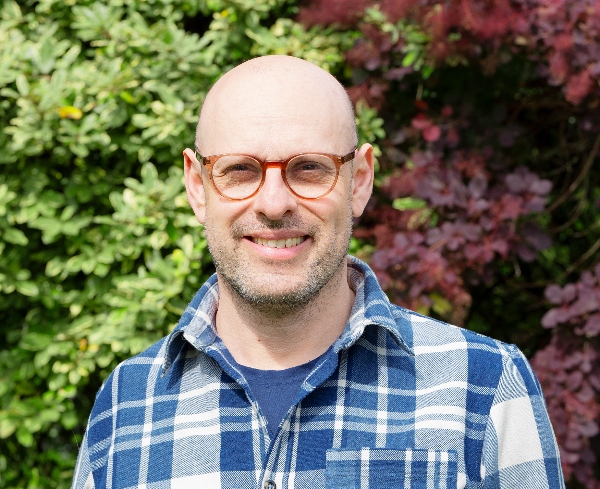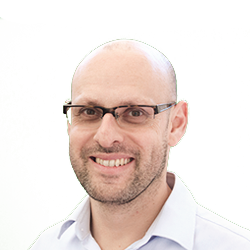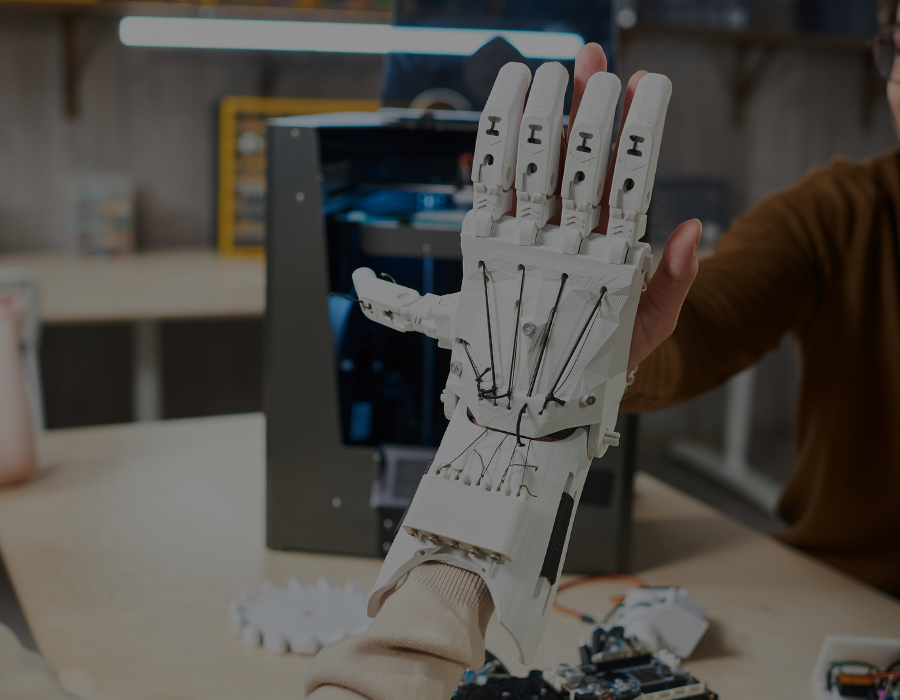Meet Dr Matt Davis, who is leading ai@cam’s inspiring interdisciplinary initiative to discover the next AI innovations that could transform the lives of people facing language and communication barriers.

What is the inspiration behind the Improving language equity and inclusion through AI project?
New AI technologies are changing our day-to-day lives – we speak rather than type text messages on our phones; we have conversations with AI systems such as Alexa or Siri. As these systems become more common, they have the potential to reinforce the barriers faced by those who find communicating through language more difficult.
A significant proportion of the UK population find spoken or written communication challenging due to sensory, neural or linguistic challenges such as hearing loss, brain injury or developmental language disorder. According to Speech and Language UK, as many as 1.9 million children in the UK are currently struggling with talking and understanding words. This can have very severe impacts on people throughout their life, in education and beyond.
A lot of the research that I’ve been doing through my research group at the MRC Cognition and Brain Sciences Unit (CBU) is interdisciplinary or multidisciplinary. We’re bringing people together with academic backgrounds in psychology, linguistics, medicine, neuroscience and so on to understand why and how individuals succeed or fail at speech understanding and language learning. The fantastic thing about Cambridge is that it’s got such amazing strength and breadth in all of those areas. We are home to probably the best speech and language, computer science and engineering researchers in the UK.
We are also home to Cambridge University Press & Assessment, which is the largest assessor of English language proficiency in the world, among other things.
Our ambition is to harness all of that knowledge to try and do something to help people who struggle with language. This ambition has been central to the mission of the Cambridge Language Sciences Interdisciplinary Research Centre for many years now.
As part of that interdisciplinary work, we’ve held various activities to bring together different research groups from across the university, to meet with practitioners and stakeholders, whether those are speech and language therapists or technologists or educationalists, to try and figure out how we might work together to improve language achievements and language outcomes for people.
The Improving language equity and inclusion through AI project is rallying these research communities to develop new AI technologies to support people who find communicating using language a daily challenge. This will in turn help to improve language equity and inclusion.
The ai@cam funding will be used to bring together all of the different communities in Cambridge, including technologists, language scientists, ethicists and communities affected by language technologies to try and develop project ideas that can become the next wave of innovation.
How will the ai@cam project work to improve language equity and inclusion?
The investment from ai@cam is a huge accelerator in being able to deliver the things that we are excited by. Typically, we might be able to hold one workshop and fund maybe one or two small-scale initiatives per year, but the investment from ai@cam is going to allow us to fund around 10 projects and several workshops over the next 18 months to two years. Having recognition on the importance of this topic and the strength of the Cambridge community is going to make a real difference to what we can deliver at the end the project.
What are you planning to deliver at the end of the project?
There’s lots we don’t know about how this field will develop. It is tricky to predict what technologies will be in daily use in two years’ time and there is lots we don’t yet understand about what interventions can help make those technologies more inclusive.
As part of the work at the Cambridge Language Sciences Interdisciplinary Research Centre, we’ve been delivering incubator funding. The idea is that a small amount of money at the start of a project can really get things moving, bring together new teams to tackle new problems and then open up further research funding or further investment from other sources. What we’re trying to do is to create new teams around various societal challenges in language, equity and inclusion for a range of communities that use different kinds of language technology.
At the end of the day, technology development in this area can’t just happen with some engineers sitting on their own thinking about how to build a new gadget. It’s got to be technologies that work with the needs of the users. I feel like that vision will not come from engineers in silos or language researchers in silos, but from bringing them together with the people who stand to benefit – people with language impairments or hearing impairments. It’s all about linking those communities together.
For me, the investment from ai@cam is something that’s hugely exciting in kickstarting a whole load of new projects. A truly transformative outcome would be for those projects to take flight, scale up and ultimately lead to the technologies that will be of benefit to people in their everyday lives.
What inspired your own work in this field?
It all goes back to my own personal history. At about 5 or 6 years old, I went to see a speech and language therapist because I had what’s called a speech sound disorder, which is very common in young children. Instead of “selfish” I said “shellfish”. It had reached the point where it was affecting my reading and writing. I was spelling words incorrectly because I was mispronouncing them.
I think part of that has brought about my fascination with speech and language. Actually, my speech sound disorder was resolved very successfully with half a dozen visits to a speech and language therapist, but I retain a huge amount of respect and admiration for the work that speech and language therapists do, both with children and with adults with acquired language disorders. The idea that I should end up as a psychologist and neuroscientist studying language and language disorders probably stems from some of those very early experiences.
At the time that I did my PhD in psychology in the mid to late 1990s, there was a lot of excitement about neural networks. It was a time when these AI technologies were in their infancy and a lot of the inspiration for those technologies came from trying to build systems that behave a bit like the brain. One area in which that was particularly successful in those times was in language, which became the focus for my PhD research. Using those neural networks for speech recognition in computers or for machine translation and so on was a big challenge at that time. The computers just weren’t fast enough to really deliver on the promise of those methods.
A lot has changed in the intervening period, and I’ve been cheering from the sidelines as I’ve seen the exciting way speech technology and neural networks have progressed.
Why does research like this matter?
When I was at school studying maths, there were big discussions going on about the role of electronic calculators in the classroom. We were allowed to use calculators in our exams, but actually the better teachers said: “what you really need to learn is not how to use the calculator, but how to think through the maths that you’re doing and not just plug the numbers blindly into the calculator and accept whatever answer comes”. I think that sort of literacy or understanding of how AI works and how you can use it to support your abilities – but not to replace them – is what we need to do with AI and language.
We have to recognise that speech technologies are incredibly popular already, and they’re only going to become more accessible to more people. The real skill will be for researchers, educators and technologists to understand how to use those technologies to support people – rather than using them in ways that make people vulnerable to the weaknesses of the technologies or that increase existing disadvantage. Tackling societal challenges isn’t something that comes from technology alone or from science alone, but it really comes from all of the disciplines working together. Where better than Cambridge to do these things?
As told to Vicky Anning
More about Improving language equity and inclusion through AI
The MRC Cognition and Brain Sciences Unit at the University of Cambridge is leading this project, in collaboration with academics from the Departments of Computer Science and Technology, Engineering and Psychiatry as well as the Faculty of Modern and Medieval Languages and Linguistics and the Faculty of Education.
Read more
If you would like to find out more about this research project, please email Dr Matt Davis (matt.davis@mrc-cbu.cam.ac.uk).







